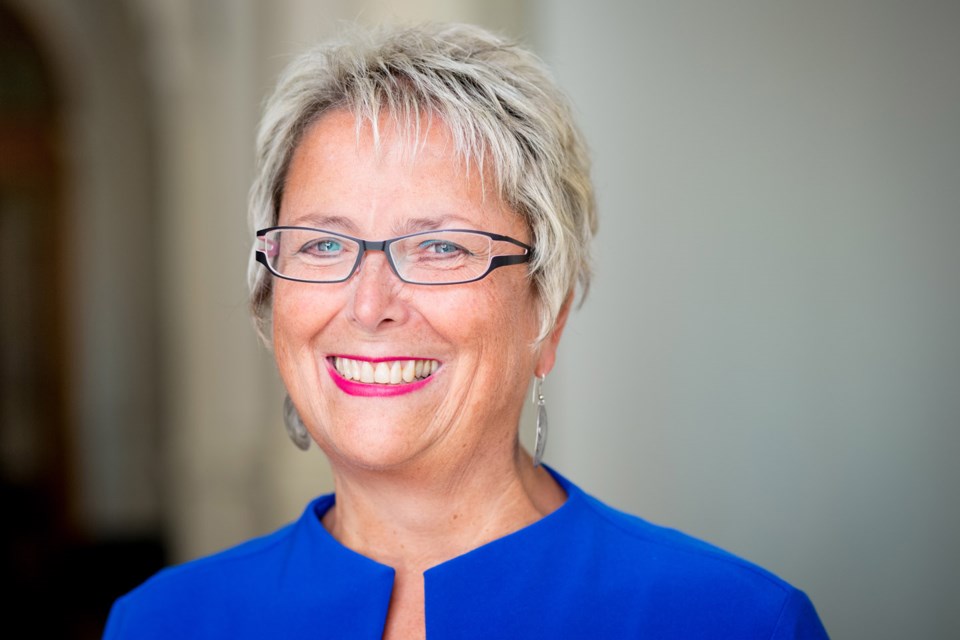Judy Darcy is defending proposed legislation that would allow some hospitals to hold youths against their will for up to seven days following an overdose, despite concerns from B.C.’s chief coroner that the practice could do more harm than good.
Late last month, Darcy, the MLA for New Westminster and minister of mental health and addictions, introduced the legislation, which was quickly met with pushback from drug user groups.
Chief coroner Lisa Lapointe also issued a statement expressing concerns that implementing the changes without “an established evidence-based, accessible system of substance-use treatment services … there is the potential for serious unintended consequences as a result of these legislative amendments, including the potential for an increase in fatalities.”
The legislation comes on the heels of the province's worst month on record for fatal overdoses, with 170 dead in May.
In an interview with the Record this week, Lapointe acknowledged the point of the legislation: concerns about youths with a history of problematic substance use being released back onto the street after a serious overdose. The intent of the legislation is to allow doctors to hold youths under 19 for at least 48 hours and up to seven days as a stabilization period.
Hospital staff would then work with the youth to devise a care plan to treat problematic substance use before release. But Lapointe said the program is “a little bit like putting the cart before the horse.”
“The system of recovery is so fragmented and so disorganized and so ad hoc that I’m just not sure that, as idealistic as this plan is, practically it can work,” she said.
Darcy is quick to point out the proposed changes do not amount to involuntary treatment – she and Lapointe agree the evidence is mounting that involuntary treatment can do more harm than good.
But Lapointe said the program still could come with the same problems as involuntary treatment. She noted the seven-day involuntary hospital stay could be seen as punitive and make young people reluctant to call 911 for an overdose.
She said she would prefer the hospitals create a space where youths would be more likely to voluntarily stay and access those services.
“I recognize that the intention is very noble,” Lapointe said. “But we do have a long history in this country of incarcerating or involuntarily holding people ‘for their own good,’ and I worry about that part. It has not been successful in the past.”
The legislation follows a pilot program at the BC Children's Hospital in Vancouver, which Darcy said had positive results for the youths involved. Around 90% of youths got additional supports through the pilot program, including 54% who obtained opioid-substitution treatment, such as suboxone.
“This has had very, very positive results,” Darcy said.
But Lapointe noted most communities don’t have the same level of services available to youths as the BC Children’s Hospital.
“Very few communities, in fact, have very many services – and if the youth goes back to using, they’re much more likely to suffer a severe overdose,” Lapointe said.
That’s part of why the program would only be in place at 51 facilities, Darcy said, noting all of them have a psychiatric unit or an observation unit.
The program won’t be instated as soon as the legislation is passed, Darcy said, adding the government has been working to bolster supports throughout the province. She pointed to the creation of Foundry youth centres, locations described as a “one-stop shop” for youth supports.
“This is an important piece, but it’s one small piece of the work we’re doing as a ministry,” Darcy said.
“There are a number of things that we're working on, that are about the voluntary system of care. And that is, frankly, what has taken up 98% of our attention in the ministry. It just doesn't make the same headlines.”



